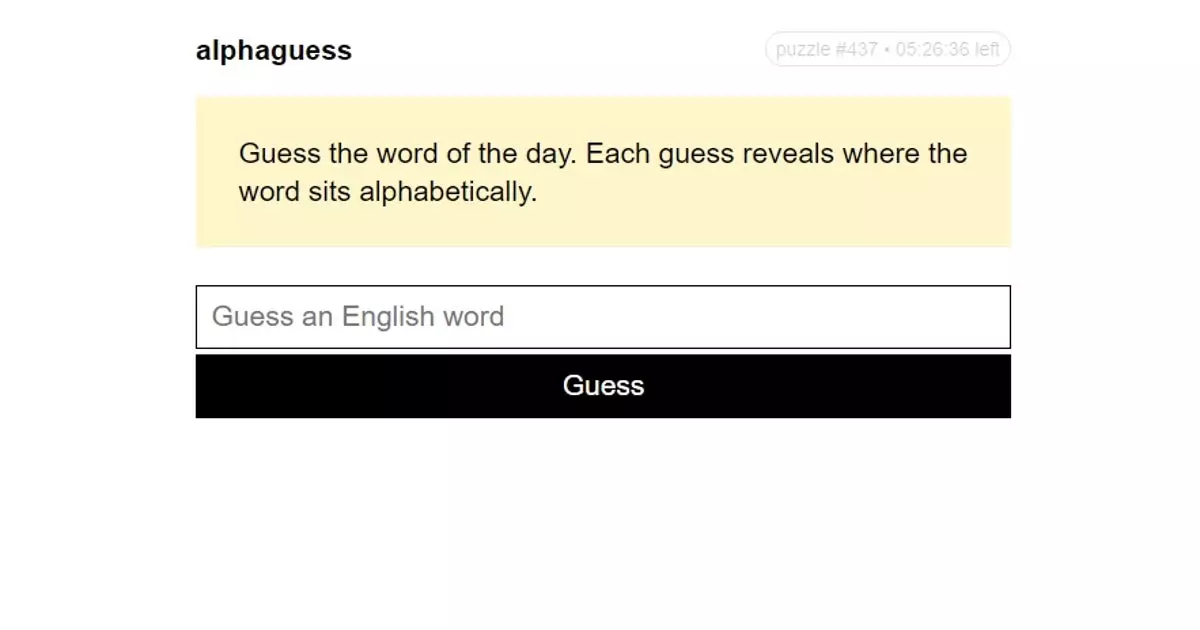In an era dominated by productivity hacks and efficient time management strategies, there’s an ironic trend taking the world by storm: games designed to sap your productivity. Yesterday, I introduced you to Scrambled Maps, a seemingly innocuous timewasters offering a meager fifteen minutes of mental escape. Today, we dive into the engaging realm of Alphaguess, a daily browser-based puzzle game that might just become your favorite antidote to work. The captivating nature of these games raises an interesting question: does indulging in such distractions enhance our overall efficiency or merely cloud our judgment?
Alphaguess is a simple yet engaging concept. Each day, players face the challenge of guessing a hidden word based on a limited set of clues. With each guess, rather than giving straightforward feedback, the game provides a comparative hint—indicating whether the guessed word falls before or after the correct answer in the alphabet. This unique feature transforms a mundane guessing game into a strategic experience, albeit one that can frustrate the most adept players. Despite my extensive attempts—26 guesses spanning eight minutes—I found myself grappling with my limitations, as I sought to recall an extensive vocabulary.
What is it about Alphaguess and similar puzzle games that hooks us in? They lack the complexity typical of strategic board games but possess an inexplicable draw, much like a simple guessing game among friends. While they may not require advanced reasoning skills or in-depth comprehension of intricate rules, these formats stimulate an innate curiosity. The experience of narrowing down possibilities might just mirror the gratifying sensation of problem-solving, albeit within a controlled and non-pressurized environment.
One possible explanation for the appeal of games such as Alphaguess lies in their ability to offer solace in a digital, fast-paced world. Engaging in these light-hearted activities can be likened to playing mindless games during a long road trip, where the goal is merely to pass the time and enjoy company without destination pressure. Here, solitude and interactivity align, allowing players to dive deep into a seemingly trivial activity. It’s in this realm of diversion that true productivity lies—providing a respite, clearing the mind, and oddly refocusing our thoughts for the tasks ahead.
While puzzle games such as Alphaguess may appear as mere distractions from work duties, they serve a more valuable purpose. They remind us of the importance of mental breaks and give us permission to step away from the relentless pressures of productivity. In a world that often glorifies constant busyness, perhaps it’s time to reconsider the value of engaging distractions. So next time you find yourself tempted to indulge in a daily puzzle, don’t shy away. Lean into it, as these moments of light-hearted challenge may just offer the clarity needed to reclaim your focus and drive.


Leave a Reply